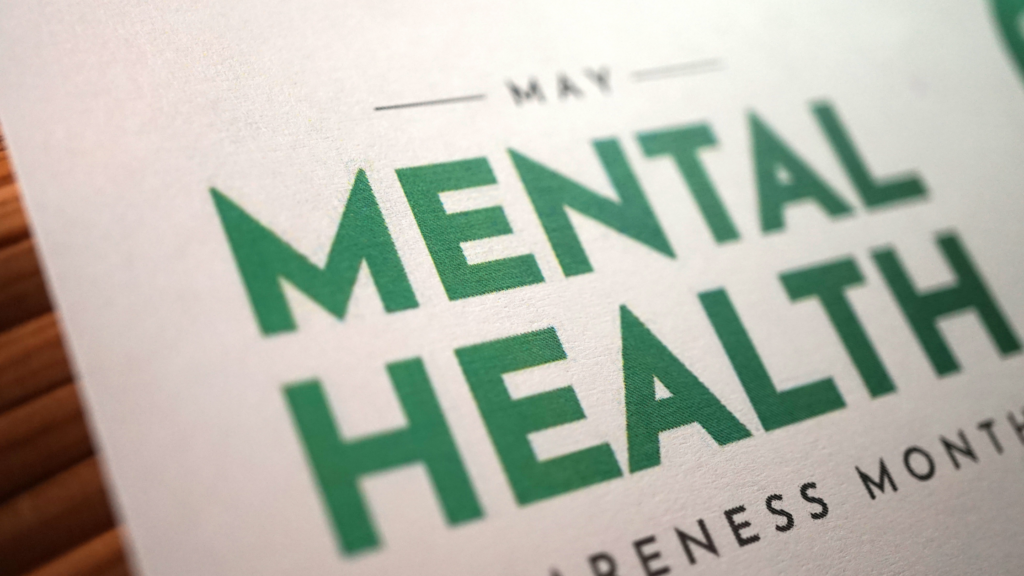
May is Mental Health Awareness Month allowing us the perfect time to reflect on our mental health. I am grateful to be able to have these conversations across four generations of women: my daughter (18 years old), my mother (72 years old) and my grandmother (94 years old). I found myself having an easy conversation with my daughter about mental health. After all, we have been talking about the importance of mental health her entire life. However, things were different when talking about mental health with my mother and grandmother.
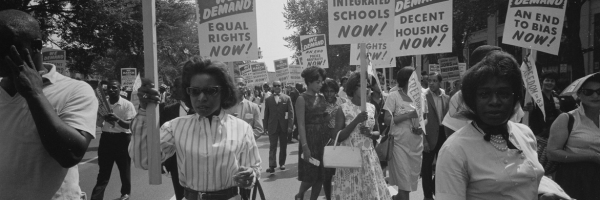
My grandmother grew up in the Jim Crow south where she laughs at the fact that she got away with drinking from the water fountain labeled for whites. My mother often reminisces about the times that she marched against police repression and racial segregation in the late 60s. She even tells the story about the KKK marching in her neighborhood on the same day she was married. These stories serve as the backdrop of both the challenges and successes in their lives. However, one thing that they have in common, focusing on mental health was a luxury that they could not afford when you have bills to pay and children to raise.
The need to focus on mental health became even more apparent when my grandmother lost her son, my mother’s brother, in 2020. Living a full life as they have, you will experience loss and grief. They had attended their fair share of funerals over the years. However, my grandmother, being unmarried, relied on my uncle in a way that was not fully understood until his passing. Not only was he her child, they opened a business together, took family trips, celebrated monumental moments and were even occasional roommates. As my grandmother’s mobility changed, she depended on him to help with the upkeep of her home and car. He was mother’s best friend and confidant. She would often go to him in her time of need or just to have a listening ear. Needless to say, the grief of his passing was incomparable.
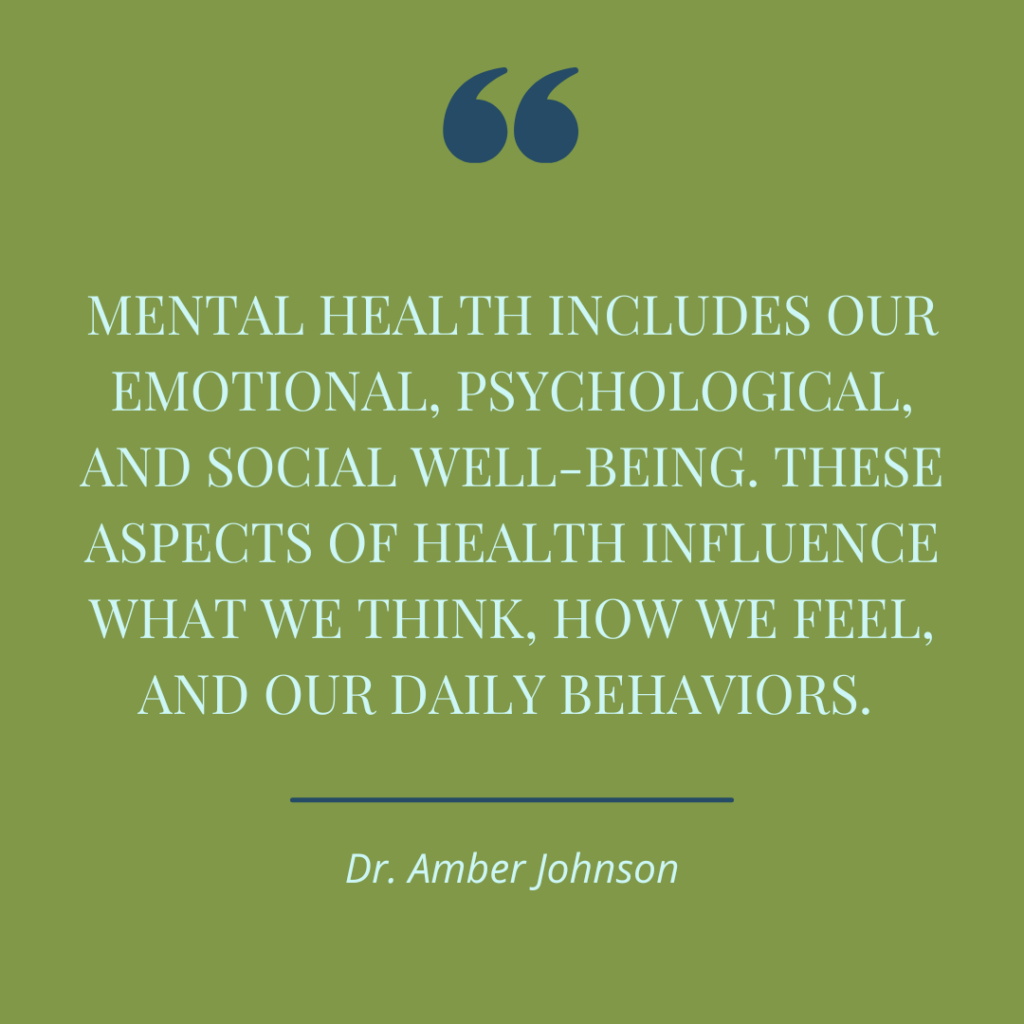
As a researcher, my first thought was to gather resources that would help them start their grief journey while prioritizing their mental health. I was extremely disappointed in the lack of mental health resources and information tailored for Black women over the age of 50. There was no information that related to them which made it harder for all of us to understand their grief. Their grief manifested differently between them and at many times, they did not even know that certain actions or behaviors were grief. For example, my mother and I would have conversations she would usually have with my uncle. However, she would be hurt that I did not respond similarly to way my uncle would have responded. My grandmother fully took on what is known in the Black community as the “Superwoman” role. She began to believe that she could do everything my uncle did for her without anyone’s help. Even with growing mobility issues she was determined to maintain her independence.
It has been 4 years since his passing, and all 4 generations have a different perspective on mental health. My mother’s and grandmother’s main source of healing has been prayer as with many Black households. I am happy to say that they both have visited a mental health professional for the first time in their lives. Though my grandmother will occasionally say, “It feels funny telling my business to one of these strangers”. To add, their visits have been virtually dispelling the common myth that older adults are incapable of using technology for the health needs.
Many people ask, what does mental health truly mean? Many people equate mental health to a mental health disease or condition that should be treated by a mental health provider. Yes, there are times in which someone may need to visit a licensed mental health provider for appropriate mental health treatment. Yet, many times we forget to ask ourselves….What about the day-to-day? Mental health includes our emotional, psychological, and social well-being. These aspects of health influence what we think, how we feel, and our daily behaviors. One of the most significant contributors to mental health is stress. Before going further, let us explore exactly how we define stress.
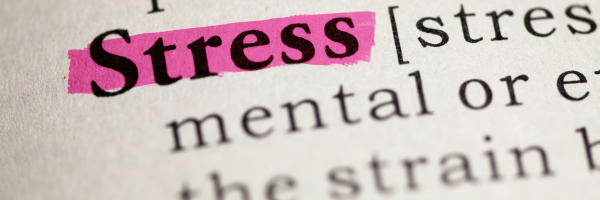
Stress is defined as a psychological and physical response to certain stressors. Acute stress, the most common form of stress, is the response to new physical and mental health stressors that last for a short time. For example, acute stress may happen in a traffic jam, when you run late to an appointment, or have an argument. Whereas, chronic stress is long-term exposure to stressors lasting weeks, months, or years. Examples of chronic stressors include discrimination, financial stress, balancing work commitments and family responsibilities, and serving in multiple roles such as wife, mother, caregiver, employee/employer, and/or friend. Stressors impact women of all ages though certain types of stressors may be prominent among older women. These include feeling isolated, experiencing changes in lifestyle due to retirement, or witnessing changes in memory and physical functioning.
I am sure reading this has you thinking about the stress you experience in your life. Take some time right now to reflect on what you are going through. Have you experienced trouble sleeping, irritability, muscle tension, or jaw clenching? Have you had changes in staying focused, feeling down, or headaches? Experiencing these things may suggest you are feeling the negative effects of stress.
So, you may be reading this and relating to growing up during Jim Crow and/or Civil Rights movements, suffering a significant loss and grief that comes with it, or the overall stress that comes with life. Here is my question for you. How are you coping and addressing your mental health? Or is there a certain level of resiliency that you have to exhibit? Have you ever heard yourself say, “It just has to get done”, “I guess I have to handle this by myself” or “I won’t allow others to see any of my emotions”? Yes, I have also said similar things. Though resiliency has allowed many women to overcome difficult challenges, putting YOU last is unsustainable and harmful.
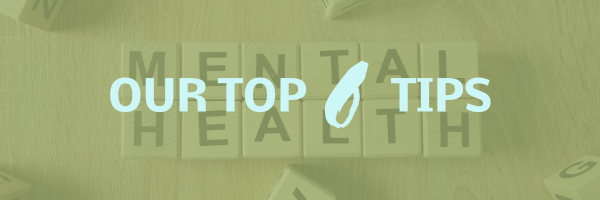
Let’s talk about what you can do. Supporting your mental health is a daily practice. Here are a few ways to help you prioritize your mental health.
- Reflect on things that bring you joy. Do you like cooking, dancing, or shopping? Have you started a new community project? Have you thought about mentoring the next generation? Commit to taking time at least once a week to do the things that bring you joy.
- Who makes you happy? Do you have close friends? A favorite family member(s)? How about a strong church family? Make time to spend with the people who make you happy.
- To what or who are you saying no? Yes, that is right. Many sources of stress stem from taking on too much, allowing ourselves or others to put more on our plate than we can handle. Setting boundaries by saying no is crucial to enhancing mental health. It is ok to protect your energy!
- How are you maintaining your physical health? Physical health improves mental health. Making small changes can lead to major changes long term. It is as easy as cutting on your favorite songs and dancing for about 10-15 minutes. Putting grapes in the freezer for a frozen snack when you have a sweet tooth. Committing to getting at 6-8 hours each night.
- How do you tap into your thoughts and feelings? It is important for you to be mindful of your thoughts and feelings. Some women may like to practice meditation with focused breathing exercises removing worries and distractions. There are also meditation apps that may be useful for those who are tech-savvy. You may also take time for prayer or simply find a quiet place to self-reflect.
- Seek mental health support when needed. Mental health professionals are just as important as your medical doctor. You may have a mental health condition that should be treated, you may have experienced a significant loss, or you need someone who is trained to help you get through tough situations. Prayers works but as I tell the women in my family, God made mental health professionals too!
I will leave you with this last thought. No effort is too little! Taking time for your mental health takes practice. You are important!!
Dr. Amber Johnson
Associate Professor
Department of Health Science
California State University, Long Beach
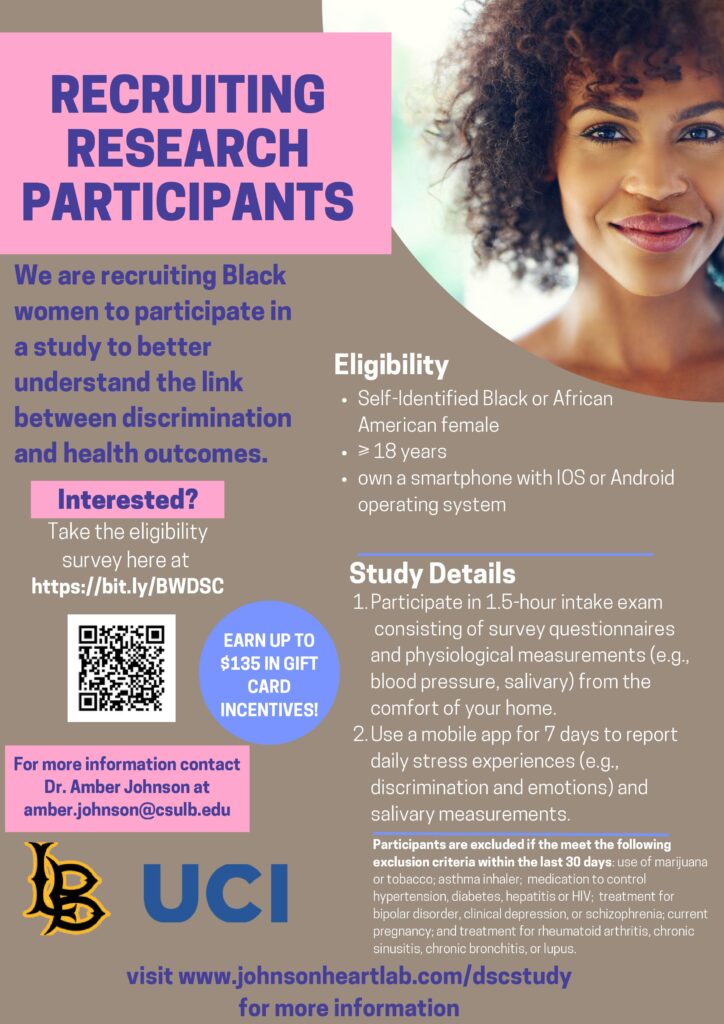
Research Opportunity
Are you interested in participating in a study to help understand how psycho social stress contributes to cardiovascular risk among Black or African American women? We are currently recruiting women aged 18 years and older to better understand how discrimination and sociocognitive processes (e.g., thought patterns, worldviews) can influence cardiovascular disease risk for Black women.
All eligible participants who complete this 7-day study will receive up to $135 for their participation. You can review the inclusion and exclusion criteria below.
To be eligible for the study (Inclusion Criteria), you must be: (1) at least 18 years old (2) self-identify as African American or Black (3) comfortable submitting saliva samples and 4) ownership of a smartphone with IOS or Android operating system.
Exclusion Criteria: Participants are excluded if the meet the following exclusion criteria within the last 30 days: use of marijuana or tobacco; asthma inhaler; medication to control hypertension, diabetes, hepatitis or HIV; treatment for
bipolar disorder, clinical depression, or schizophrenia; current pregnancy; and treatment for rheumatoid arthritis, chronic sinusitis, chronic bronchitis, or lupus.
Potential participants can determine study eligibility and sign up for the study using the following link:
Please feel free to share this information and the attached flyer if you know someone who may be interested in participating in this study. You may also feel free to learn more about the study by visiting https://www.johnsonheartlab.com/dscstudy
Thank you for your support!
Dr. Amber Johnson
Thank you Dr. Johnson for such a carefully detailed article. your compassion and understanding comes through vividly on the pages of the article.
I greatly appreciate your reminder that in spite of life’s obligations, responsibilities, and challenges, we are still important too – and need to focus on self sometime!
continued Blessings of success to you.